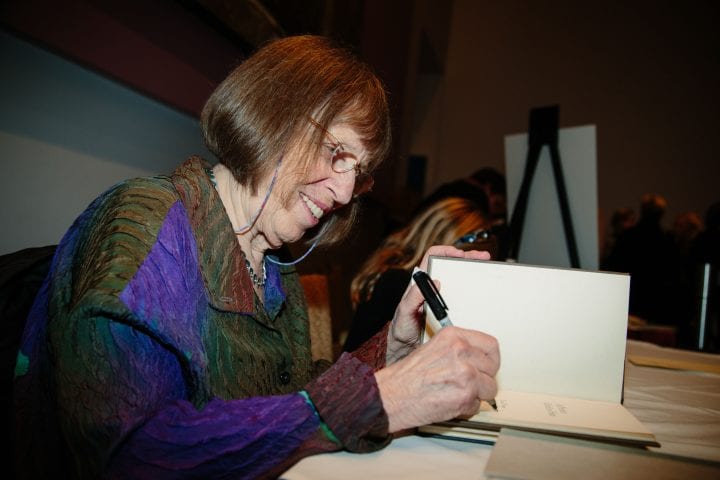
Linda Pastan’s Breathless Words at The Center School
December 2, 2015
By Erin Langner, WITS Program Associate & Sonder Editor
When Linda Pastan and I approached a classroom of The Center School, where she was about to speak, we were three minutes early. A teacher inside, in the gentlest, quietest whisper, asked if we wouldn’t mind waiting outside, for just two of those minutes. The students inside were deep in the throes of a workshop. Pastan raised her eyebrows and knowingly whispered back, “Of course!”
Behind the door, we found a group of students who took poetry more seriously than many of the people I recall from my college English classes. Pastan, the renowned poet who was awarded the Mademoiselle poetry prize during her senior year at Harvard (over runner-up Sylvia Plath), noted the faded-green bob of a student sitting in the front, telling us of how she had struggled to picture a niece’s similar haircut that she had only heard about over the phone. She turned to the young woman, “I hope this doesn’t embarrass you, but now I see what she was talking about, and it looks so lovely.” This was one of several exchanges between Pastan and the students that sounded like the otherworldly kind that happens only between artists.
It happened when another asked about the kinds of audiences the poet likes reading to the most. Pastan’s eyes lingered over her ovular glasses before she reflected, “Honestly, audiences just like this one. People interested in poetry and writing. And groups small enough where I can see the faces.” She went on to share a trade secret: her “drawer of failed poems,” a place where she stores the lines of poetry she removes but can’t part with entirely, during her editing process. She then added a less romantic suggestion for the young poets: “If you don’t love revision, you should find something else to do.”
Much of the time, she answered students’ craft inquiries–questions about writers’ block and changing perspectives over time–by reading of one of her poems. The quiet force of her voice from the page silenced the room. Each time this happened, it filled instead with their absorbed expressions as the class bored deeply into the words that hung in the air well after Pastan stopped reading. Her spoken desire to write poems that leave you “breathless, like someone riding a bicycle,” was clearly understood by everyone there.